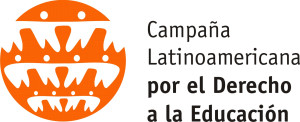UNESCO/Carolina Jerez
Latin America and the Caribbean align their actions to meet global education targets and move forward in their priorities
February 26, 2019
Members of the Regional Steering Committee for Sustainable Development Goal 4-E2030 (quality education) decided during their first meeting that for the next 12 months they will undertake actions that focus on educational inclusion and equity, one of the four regional priorities. The participants urged concrete actions to address the educational challenges associated with intraregional migration such as the recognition, certification and validation of skills and diplomas. Measures to prevent school dropout were also discussed.
Source: UNESCO
Ensuring regional progress in meeting the targets of Sustainable Development Goal 4 was the main focus at the first meeting of the SDG-E2030 Regional Steering Committee for Latin America and the Caribbean, held in early February in Santiago. In two days of work, the representatives of member countries of this committee and the agencies involved followed up on the progress made in the commitments undertaken at the II Regional Meeting of Ministers of Education of Latin America and the Caribbean, held in Cochabamba in July 2018.
The committee agreed to focus its work on equity and inclusion for the next 12 months. The participants specifically agreed to work towards addressing the educational challenges posed by intraregional migration such as, for example, concrete measures to recognize, certify and validate skills and diplomas and initiatives to prevent school dropout.
At the meeting, forms of regional cooperation were defined and an action plan was drawn up for 2019-2021, in keeping with the SDG4-E2030 Implementation Roadmap for Latin America and the Caribbean. Agreements were made to initiate the activities of the four regional working groups for articulated and coordinated actions in policies and strategies; funding and governance; communication and advocacy; and monitoring and reporting. All of this in view of the four issues prioritized by the region’s ministers of education: lifelong learning; equity and inclusion; teachers and education personnel, and rethinking educational quality.
At the meeting, held on January 31 and February 1, 2019, relative progress was presented on the mechanisms for monitoring, follow up and reporting SDG 4 targets, carried out by the UNESCO Institute for Statistics and the Latin American Laboratory for Assessment of the Quality of Education (LLECE). The regional coordination process of the 2030 Education Agenda was also reported, after two ministerial meetings, one at a highly technical level and two follow-up meetings held in the region in 2017 and 2018.
Francisco Miguens, director of International Cooperation at the Ministry of Education of Argentina, and a participant at this encounter, stated that the meeting was “a positive instance to be able to define the main strategies for our region in priority areas such as school dropout, the integration of migrants in the educational systems, teaching strategies, the use of technology at school and other fundamental issues. We achieved concrete agreements that allow us to take practical measures that will have an impact on our educational systems.”
The conclusions of this gathering will be drawn up and published soon by the Regional Bureau for Education in Latin America and the Caribbean (OREALC/UNESCO Santiago), which serves as executive secretariat of this committee.
What is the SDG4-E2030 Regional Steering Committee?
“The committee strives to ensure a strong coherence, at both the regional and global levels, and collective work, so that countries and education partners in Latin America and the Caribbean can move together towards achieving the targets of Sustainable Development Goal 4 (quality education). This instance follows up on regional and global agreements, harmonizes and strengthens the support for Member States to achieve the targets and launches the implementation of the Roadmap agreed on for the region,” explained Claudia Uribe, director of OREALC/UNESCO Santiago.
UNESCO provides orientation to Member States, makes recommendations for action, advocates for the funding of these challenges and monitors progress made on the education targets through the work of the UNESCO Institute for Statistics and the Latin American Laboratory for Assessment of the Quality of Education (LLECE).
The committee ensures the representation, articulation and communication between the ministers of education of the Member States and other relevant stakeholders. It is composed of four working groups and an executive secretariat, a role assigned to the Regional Bureau for Education in Latin America and the Caribbean (OREALC/UNESCO Santiago). For the period 2019-2021 the Regional Steering Committee is composed of eight Latin American countries and three Caribbean countries, along with UNESCO, UNICEF, UNFPA, CARICOM, CECC-SICA, OAS, OEI, CLADE and Education International.





